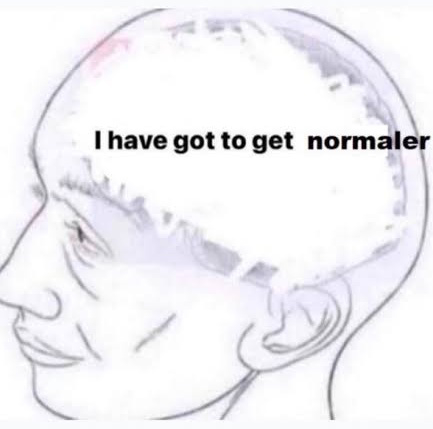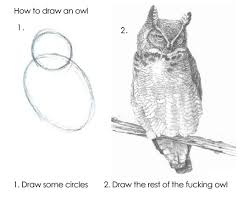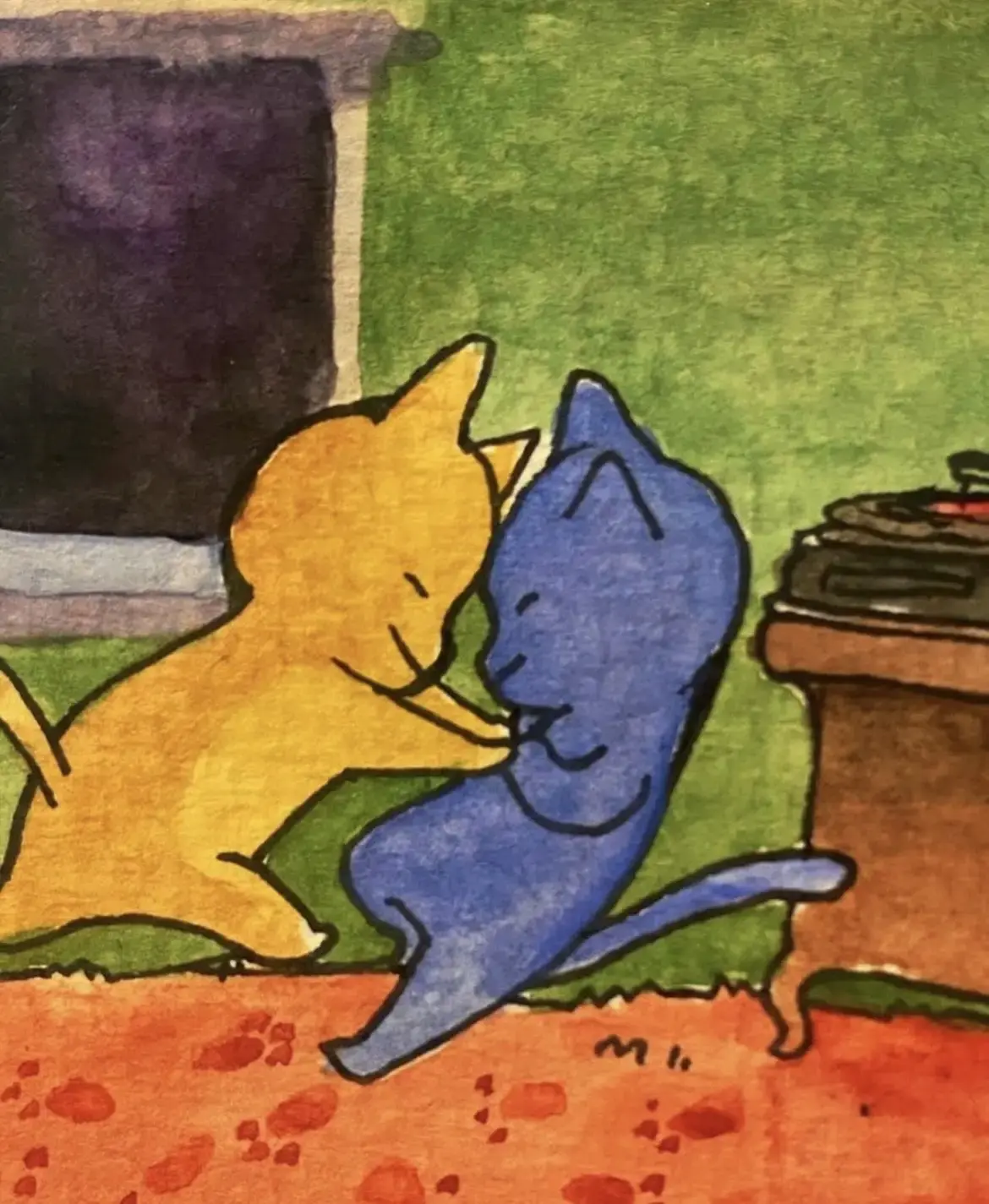I’m in my mid thirties and only now am I coming to terms with my neurodivergence. I’m one of the lucky people to have access to health care and the time to educate myself on the topics of neurodiversity and mental health.
And with all of that, I have only recently started to take notice of how my childhood experience affected my perception of people and how the world works.
I won’t go into intense details for several reasons, but long-story short - my parents were deeply unwell and in forcing me to hide and overlook their mental health, I currently have to spend time trying to sort out what I now find acceptable, healthy, and loving.
Being on the spectrum and lacking the resources to navigate an allistic world was hard enough. I had to make an approximation of normal without having consistent practice with it.
I feel sad that I’m in my thirties and still seek out the approval of people I don’t know. Especially when those people exist in spaces where it’s not safe for them to know me, like online, or at bigoted in-person spaces.
I don’t feel like I got a chance to make human mistakes and now that I’m on my own for the first time in my life, I lack the tools and connections to safely unlearn unhealthy behaviors and learn new healthy behaviors.
I know I’m not the only one, and I’m glad that this comm is around to meet and troubleshoot solutions.
Sometimes I feel like I don’t understand a joke in a post and I’m afraid to lose the game of chicken, becoming the first person to ask if a person was serious.
Sometimes I’ll check my comments for up votes to make sure I’m not being cruel to someone without knowing.
I was convinced I was cruel and carrying that belief has made me so vulnerable to manipulation. I’ve had to create a mask that convinces people that I’m in on the joke. That I know better and any mistake I make could conceivably be intentional. I can’t feel vulnerable and I look at people as a collection of warnings and threats instead of human beings who might treat me like I’m human too. I have an exit plan on the off chance somebody sees through my mask, because that was the most dangerous thing in my childhood.
Already feeling out of touch with my body, I had to exist outside of myself to make sure that I didn’t present any image that reflected poorly on my parents. Precious bandwidth dedicated to something I don’t really even care about. My family was shitty and they should feel shitty, but I have my attention focused outward on how others see me. Because that’s what they policed. I didn’t get to pay attention to my inner world, the outer world, or the real ways the two interacted.
My heart goes out to any kid that’s experienced trauma, but this is the way I experienced it - as part of a community underserved by an allistic society that prioritizes the aesthetics of a nuclear family.
But knowing all this, I can feel some comfort in the fact that I found a community here where I can share my experiences and contribute to a world that values and people like me.
I experienced extensive childhood neglect and trauma so CW on the following…
I think that there’s a couple of interesting overlaps in your post that I wanted to riff on.
One of them is that children who grow up in abusive households very often end up developing a sort of mask because they learn to hide their emotions and what they are going through at home. This can lead to some pretty big impacts on stuff like identity, depression & anxiety, connection to others, vulnerability to exploitation and further abuse, and difficulty with establishing & maintaining healthy boundaries as well as becoming a people-pleaser.
Autistic folks very often experience this too, although in many ways I’d argue that it’s deeper because the autistic experience of masking is about denying your interests, your aversions, your entire communication style, your way of understanding the world etc. etc. in fact it’s virtually the wholesale denial of the self imo (although comparisons are odious but I do think that autistic masking tends to be much more pervasive in its scope, all things being equal.)
Obviously being autistic and especially undiagnosed/late-diagnosed brings with it a significantly higher rate of traumatisation than the general population for lots of reasons too.
When you happen to exist in the overlap of those particular parts of the Venn diagram then it’s really understandable if you struggle with the things that you’ve described in your post.
Part of the process of growing beyond the obstacles you’ve described is a threefold matter imo:
-
Connection to self
-
Connection to others
-
Unmasking around others
When you’ve been taught to disconnect from yourself and your values and stuff like your gut instinct, whether due to abuse or being forced to mask your autism or a combination of the two, you’re going to find yourself more vulnerable to abuse and exploitation because you’re not going to be conscious of the red flags that your body and your mind are throwing up when someone is being coercive or ignoring your boundaries or gaslighting you etc.
If you are so dissociated from your internal experience and you’re completely fixated on saying the “right” response in the “right” way with the “right” body language, it’s really hard to keep track of how you’re actually feeling or whether the other person is trying to pull a fast one on you. It’s hard to keep track of what you’ve said or what you meant, let alone what they have not to mention how that has made you feel.
It’s really common for high-maskers to have to go back over their past few days in their mind, repeating their social interactions and other experiences, before they stop and realise that someone was being cruel or lying or even to understand how they felt in any given moment. It’s sort of like needing to play back the recording to pinpoint what was going on for you in the recent past.
So it shouldn’t be any surprise if you feel vulnerable to abuse and exploitation with all of that as context.
When you’ve been masking your whole life you tend to have very superficial connections with others that are contingent upon you maintaining your mask.
Typically, most people have a network of friends and loved ones that help them out with identifying their emotional experiences and when they should do things like change jobs or stop hanging out with bad characters and who vet potential romantic interests. This might be small or it might be large but what really matters is the quality of this network.
If you don’t have this support network who is seriously invested in your wellbeing then you often find yourself having to tough it out alone and to figure out your needs/warning signs and your emotional distress alone.
So instead of having people around you telling you “I think you need to speak to your manager’s boss about how they’ve been treating you at work because you’ve described a pattern of behaviour targetting you which is completely unacceptable” or “Are you sure that it’s a good idea to move in with this person who you’ve only been dating for three months?” and that sort of thing, you have to go on your own best instincts which is obviously fallible (as we all are) but this is compounded by the issues caused by being disconnected from yourself, as described above.
Then the third part of this is that when you are high-masking around others, you are very unlikely to tell people what you’re struggling with (e.g. understanding context or implication, conveying your intentions, your experience of emotional distress etc.)
This has major implications for establishing and maintaining that support network, as described above, as well as that support network’s ability to insulate you and protect you from the things that you’re at risk of because of all the above stuff.
By masking yourself, you disconnect from the people who care about you for who you truly are; you can’t extend understanding to someone who you don’t really know, you can’t support someone who is constantly maintaining the veneer that everything is fine and they’re coping perfectly well, even when they aren’t.
So the combination of these three factors is a perfect storm for being isolated, experiencing poor mental health, and being vulnerable to abuse and exploitation.
Now (if somehow you’ve made it this far into my ramblings) before you go jumping to the high-masker’s conclusions:

Or

Or
Step 1: Be good at human interaction
Step 2: Don’t be bad at human interactions
Or that sort of thing, it’s important to consider that you shouldn’t just throw yourself into the deep end and expect yourself to cope with the dramatic changes.
Instead I would encourage you to consider it like working out:
You start off small but you push yourself within your capacity. You want to initiate growth but if you go take on too much or you push yourself too far then you’re going to get hurt and you’ll experience major setbacks to your progress.
Instead it’s about small changes that accumulate and consistency over time.
If you don’t have anyone who you trust in your network of friends and loved ones, maybe start with finding a good therapist and use them as your primary support as you gradually work on developing deeper connections to others in your life.
You probably have people who you trust to a certain degree, who you feel are safer than others.
Gently lean on this but make sure that you’re assessing their responses and their actions as well - don’t just assume that they are good and that they have your best interests at heart but check to make sure that they are acting in line with your assessment of them. Over time, try being a bit more open about not understanding something or missing the joke with them. Start small but open up the communication lines with the people who are candidates for being trustworthy over time and you will begin to develop that network.
At the same time you will be unmasking. Make sure that you reinforce that you are doing well and make it a positive internal experience for yourself, even if some people react negatively. Unfortunately that’s going to happen but it won’t happen every time. Some people will be attached to the persona of the mask and they won’t like the entire human being that exists beneath its surface and that’s okay - that’s not your fault and you don’t need to assign blame to yourself if someone doesn’t like you any more than you should assign yourself blame if somebody doesn’t like a particular flavour of icecream; people have preferences and that’s okay. More to the point, people have preferences and you’re okay.
I remember this piece of advice that I came across a long time ago - you know when you have a style when some people don’t like how you dress. The same can be said about having a personality and healthy boundaries; you know that you have a personality when some people don’t like you and you know that you have healthy boundaries when people cross them or take a dislike to those boundaries.
Try to keep in mind the old Lenin adage - better fewer, but better.
So what if most people don’t understand you or don’t like you if you have a small circle of people who understand you and like you for who you are? After all, it is better to be disliked for being who you are than to be liked for being who you are not.
As you unmask to yourself and to others you will gradually connect more with your needs and your internal experience along with those gut instincts, which will keep you safer.
With a small but secure and healthy network—even if it’s just one person—you can check in with things that you’re not sure about. You can expand that circle of trust gradually with them and with others. You can begin to practice unmasking in social contexts. You can start reconnecting with your internal experiences and asserting your needs and boundaries.
As you strengthen one part of this system, you will be able to strengthen the other parts and deepen all three.
It’s a big task but keep at it gradually and eventually you’ll find yourself in a completely different situation.
Try to be gentle with yourself in this process and avoid blaming yourself wherever possible. Autistic people who are lower masking tend to have higher social filters than the average person and that’s okay. I don’t think it’s a bad thing if you filter out a large proportion of people because that means you’re going to get only the best people in your life, the ones who are understanding and compassionate and caring, the ones who are not ableist. In fact, I think that’s exactly what you deserve.

Every letter of this post hits so hard, thanks for putting this together. In my early-mid 20s I had to do a lot of playing the record back to my childhood years to even figure out that I had in fact experienced trauma and emotional abuse, afterwards working up the mental energy to go see a therapist was a struggle in itself. I have improved since then and my social anxiety is not as bad as to require high intensity mental prep to just start up a conversation, but it’s still a struggle at times, like the lingering paranoia about being unknowingly cruel in social interactions that OP also mentioned.
Thanks for the compliment!
Everything I wrote above has come from hard personal lessons that I’m honestly still working on integrating into my own life so if I can take some of my own struggles and use it to make the next person’s easier, even if only slightly, then it’s absolutely worth it.
like the lingering paranoia about being unknowingly cruel in social interactions that OP also mentioned
I feel that. My early masking was a whole lot of people pleasing which developed into a cynical, sarcastic veneer in my later teenage years as I felt increasingly helpless and hostile and alienated from others (thankfully I grew out of it!)
I still battle with unintentionally hurting people in social interactions and the borderline paranoia over it.
Two things that I think are really helpful here are:
- Remembering that you’re only responsible for your half of the social interaction, not the whole thing
If you have experienced abuse or child abuse especially then it’s really common to take on all the responsibility for everyone else’s feelings. That’s okay because it’s a learned response which was used to try and keep yourself safe®. But it’s not that helpful for adults and especially not when you’re working on having healthy boundaries.
When someone gets hurt by the words or actions of another person, a mature person would respond by saying something like: “It really hurt/offended me when you said x” and they would seek your apology. Because that’s one way to maintain healthy relationships and boundaries. It might be in person in the moment, it might be via text a few days later, it might even be conveyed through a proxy but whatever the case if a kid can do it then an adult can certainly find a way to do it as well.
A very emotionally-aware person might take it one step further and put their own interpretation to the side and ask you directly: “When you said x, what did you mean by that?” and they’ll listen to your explanation. They might even be courageous enough to ask if you meant y or z and judge your response.
But ultimately if you have been hurt by someone else’s words or actions then most of the time it’s on you to choose how to deal with it. (Obviously in situations of abuse it’s a different matter but that’s very complicated.) Basically you can’t stew in resentment towards someone who unintentionally hurt you with the expectation that it’s actually going to resolve the matter.
And, let’s be honest here, you or I would expect ourselves to confront these situations like I described above rather than stewing over it. It’s okay to have that same expectation for others in your life. In fact it’s a perfect example of a healthy boundary.
- Being open and honest
Part of this is learning to be more upfront about being autistic or having ADHD or what have you, which means doing some unmasking.
If you have ADHD then it might be that you decide to let people in on the fact that you can often be completely distracted and in your own world, that you might need others to repeat some things or to impress the importance of things on you clearly or you risk missing it, that you’re doing your best but there will be days when you forget your meds or you haven’t gotten enough sleep or your not on top of your game and you’re simply not going to be able to compensate for ADHD adequately.
If you’re autistic then it might be similar to the above except that you miss a lot of subtext and subtle cues, especially with regards to body language, and that often you can come off as being rude without any intention. You might also explain that you generally mean exactly what you say, word for word, and that if someone is picking up on subtle clues in what you said or if they suspect that you’re being sarcastic then it’s probably a false positive. And that you really appreciate it when people just ask you directly if they’re ever uncertain about what you have said or if they feel like you’re intentionally ignoring that they’re trying to communicate something to you because it gives you the opportunity to address this stuff.
But being generally open and honest, and especially avoiding being sarcastic often (except with people who you communicate very well with and who really get you), means that people will tend to recognise these qualities in you as they get to know you and when they feel like you might be implying something mean or that you are being rude they will likely give you the benefit of the doubt. This alone can save a lot of headaches. And if they feel like it’s big enough to draw your attention to an incident then they’re likely going to realise that it’s a complete misunderstanding because you’re already known to be an open and honest person and they’ll take your word for it when you apologise and explain the miscommunication.
This is another social filtering situation where it’s important to have boundaries and reasonable expectations of others; if you expect that people who are close to you should take your word and that they shouldn’t think of you as a malicious person then when a person does get closer to you but they don’t trust you when you’re being honest and they suspect you of malice that’s fine but you are absolutely within your rights to keep them at arm’s length or to downgrade your relationship with them from friend to associate. Or however you choose to understand your relationship to them. Filtering these people out is a positive thing and you should feel proud of yourself for doing it rather than chasing after these types of people to try and convince them that you’re actually a good person.
You don’t owe anyone your friendship or your trust. They need to earn it by proving to you that they are a genuine person who has your best interests in mind.
Of course I think generally it’s a good idea to give people the benefit of the doubt but if they don’t see you as a good person then they probably aren’t that good of a person themselves and that’s a big warning sign. Likewise, if there are regular points of friction between someone else and yourself then that’s an indication that you aren’t a good match - this might be because they aren’t a decent person or simply because you aren’t that compatible with them. Either way, it is what it is and taking on more than your half of the responsibility for it is only going to cause trouble for yourself in the future.
Being open and honest also means being open and honest with yourself about how you feel about other people. It means taking yourself seriously like you would if someone else told you that they feel wary about a person.
You are absolutely worth the same level of consideration that you extend towards others.
What I’m talking about here is really all about boundary-setting and managing transgressions of boundaries in a deeper sense.
So I think it’s important to end on the note that boundaries aren’t something that you impose on a relationship like some cruel autocrat but boundaries are actually a gift that you give to another person.
Sounds crazy, right? Hear me out…
Boundaries are a way of saying to another person:
"Here are the ways that you can earn my respect, and ultimately my trust, because I think that you are worthy of being close to me.
I see the best in you and I want to teach you how to avoid causing me harm because I believe that you are not the kind of person who would want to cause harm to others intentionally."
Maintaining those boundaries is also a gift, especially when there has been a transgression/a perceived transgression, because you’re saying to the other person that they are important enough to you that you don’t want to cut them out of your life and instead you’re showing them how they can remain on good terms with you or repair your relationship.
A boundary isn’t a demand that you’re placing on others as if they are your hostage, it’s something that you learn to navigate together mutually.
Again, big thanks for taking the time to write share your experience with these struggles and putting the effort into quality posts like these. Getting better mental health support from random people on a bear website than my own family is definitely… a feeling. All the best to you in your own personal journey comrade.


consider it like working out:
You start off small but you push yourself within your capacity. You want to initiate growth but if you go take on too much or you push yourself too far then you’re going to get hurt and you’ll experience major setbacks to your progress.
🤯
every comment I read from you has a revelation for me
Thank you for posting - you are an incredible boon to this community.
That’s lovely of you to say, thank you.
What you’re saying really resonates with my feelings and it was cool to see you anticipate my instinct to just ‘do better’ when offered insight.
I appreciate your framing this as a skill to build up the point of making me comfortable. I don’t have to be perfect socially, and I think you’re right about filtering the people I want in my life.
Thank you for taking the time to share your insight. It meant a lot
-
“you ask me to do one thing then ask me to do the opposite what is it you actually want?”
“I want you to fuck off”
Conversation a few days ago. Practically my entire life experience. Nothing I do is correct and everyone wants me gone, even my parents. And the crime I commit? Being a little weird.
The crime I commit? Your honor, is it illegal to be a… little silly? A little whimsical, your honor?
:3
I felt every word of this. I’m sorry for your trauma; I hope you are finding peace.
Thank you. I believe I’m on a path to peace. I can actually see things for what they are now, something unpleasant, but ultimately good for me if I want to heal.
I look at people as a collection of warnings and threats instead of human beings who might treat me like I’m human too.
I have nothing to say except that I relate to this so hard.
Welcome to neurodivergence. The sensory issues and weird thought patterns and social difficulties are all part of the package. The trauma always comes with it, as a special bonus!
It really sucks, sometimes. I feel you. I’m constantly worried about being inadvertently mean to people, or that I’m being awkward somehow without knowing it, revealing some bizarre aspect of my identity that I didn’t know was off-puttingly weird, etc. and at the same time compelled to find some way to be unique while also not standing out too much. So I can identify with a lot of what you’re posting here.
I’ve been putting off an effortpost about Unmasking Autism by Dr. Devon Price, because I’ve been so overwhelmed myself. But seeing wtypstanaccount do a book club for The Will to Change has me thinking of setting up something like that, but here in this comm. I’d need some time to prepare it, would definitely need to give it another read and assemble some materials Dr. Price offers on his site (I think?) but there’s a lot that is relevant to your experiences here. Give it a read if you haven’t.
I’m just glad it wasn’t just in my head. Like yeah it sucks being misunderstood, but I’m starting to understand myself and my neurodiversity.
And I hear you on wanting to be unique without standing out too much. It’s like I want to be human and treated like I’m human, and that takes so many social cues.
Listening to bell hooks has been such a healing influence in my life and that’s the thread that got me started. I just finished All About Love and it’s amazing.
I’d love to read your post about Dr Price’s work. I’ll definitely check out his work on my own too. Thanks!
So a while back I attended the training which Heather Morgan developed and facilitated that forms the basis for the values exercises in Devon Price’s book.
While my trauma-addled brain wasn’t functioning at full capacity at the time, I might be able to provide assistance if the book club idea gets off the ground, especially in relation to those exercises (although my capacity is limited due to being really burnt out at the moment so I’m not going to overcommit and underdeliver.)
The values based exercises in the book themselves are sort of like a snapshot or a taster of what Heather Morgan has developed which is a sort of deep work that an autism coach would typically provide over a number of sessions one-on-one.
Note that I am not an autism coach but I have worked in roles which utilised coaching methods and I’ve worked in the mental health sector, although I am not in a place where I would feel comfortable with working as an autism coach for a variety of reasons. If the book club did get running and people were interested in doing an extended version of the values exercises through one-on-one consultations to enrich their personal development that they’ve gotten from reading the book, I would consider offering to do this to a limited number of people from Hexbear if there was demand.
Obviously I’d do it voluntarily and I wouldn’t be doing this for personal benefit (I’m not seeking to establish myself as an autism coach or to build up a client base and I’m not going to use it as a sales tactic to lure potential marks or anything like that) and, given that I haven’t been engaged in putting the training into practice, I’m gonna be honest that you’re straight-up getting what you pay for lol. (If you want to get the full autism coach experience from a person who has completed Heather Morgan’s training then you’ll have to go somewhere else but shit ain’t gonna be cheap, judging by the calibre [should I say class character?] of the other participants and the cost of the training itself; the group I did my training with was very [petit-]bougie and they were all on the lowest end of the support needs scale. I absolutely did not fit into that crowd, but maybe that’s for the best…)
If this does eventuate obviously I’d be more than happy to be vetted by a trusted member of the community like a mod or something similar so that they can vouch for me in order to protect the community members, and I’d honestly prefer it that way. In fact now that I mention it, it’d probably be ideal to have an accountability loop with a mod acting as a third party to check in and ensure the safety of anyone who participates in this with me.
Anyway, just throwing the idea out there.
+1 to the Unmasking Autism book club
I just started it myself
I wonder how always seeing someone else abused while not being abused yourself effects thing?








